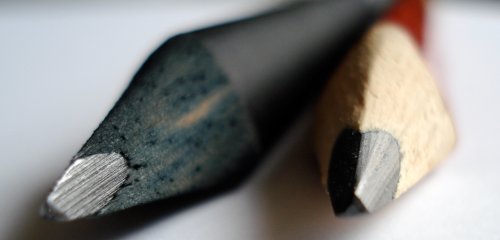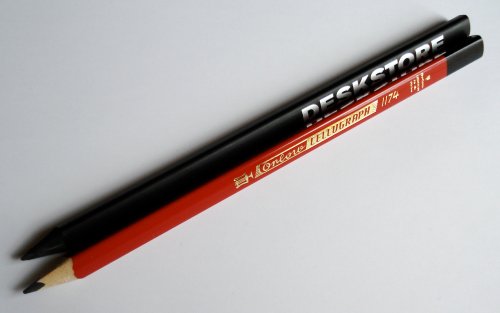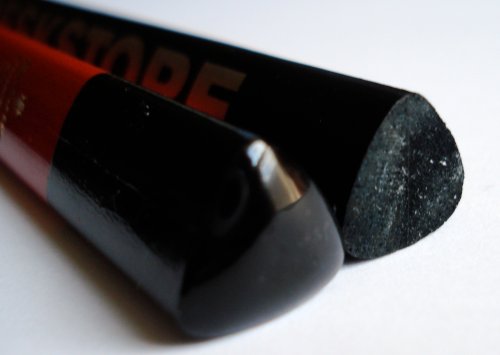
The standardization of the pencil slat during the 19th century allowed for the pencil industry’s mechanization and automation. While benefitting the industry and consumers, standardization also meant that almost all pencils have become just about the same in dimensions, with the length usually being about 175mm.

A rare exception is the Lyra Orlow Cellugraph 1174, a gigantic triangular pencil, 240mm long with a 12mm cross-section.
It is marketed as an all-surface pencil, and is mainly used by roofers, plumbers, and tinsmiths.
The Cellugraph is even more unusual, being made of Eastern White Pine, a less common pencil species.
The pencil is marked “Germany”, and Lyra has told me this means the pencil is not made in Germany, but rather China or Indonesia. (Lyra pencils that are made in Germany are explicitly marked “Made in Germany”.)

From Deskstore in Sweden (presumably not the manufacturer) is a black-dyed pencil of the same dimensions, though a different finish.
The Deskstore pencil’s lead seems to be perhaps more writing-oriented (as would be expected) with a softer lead.
The range of pencils in the market continues to amaze!


My thanks to Gunther of Lexikaliker, Woodchuck of Timberlines, and the Lyra Export Department, who all assisted with research and fact-checking for this brief article. As well, my thanks to Gunther for facilitating the purchase of the Cellugraph pencil.
